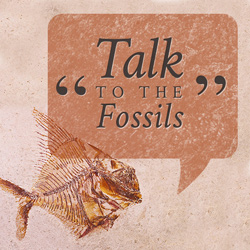 Evolution
Evolution
Could We All Get Together and Evolve as a Group?
In our quest to understand how evolution happens, we have looked at horizontal gene transfer and epigenetics, each of which gives a small amount of genuine, though generally unheralded, change.
 Natural selection and sexual selection are widely publicized theories, developed in detail by Darwin. They became iconic, in part one must think, because of the instant media recognition. The subtle self-flattery that comes of thinking that one is naturally or sexually selected to survive.
Natural selection and sexual selection are widely publicized theories, developed in detail by Darwin. They became iconic, in part one must think, because of the instant media recognition. The subtle self-flattery that comes of thinking that one is naturally or sexually selected to survive.
The evidence is sparse.
But what if it is not individuals, but groups that are selected to somehow survive?
No subject apart from religion has vexed Darwin’s followers more than why people sacrifice themselves for others. They have embraced the ambiguous term “altruism” because it does not clearly mean “compassion” or “heroism.” Rather, it is to be seen as the same natural force that causes worker ants to pass on their genes by serving their queen, who lays lots of eggs, instead of reproducing themselves (kin selection). Maybe this force creates the change we are looking for.
Altruism has been described as “an anomalous thorn in Darwin’s side” and a “conundrum that Darwinians would need to solve, given their view of the ruthless struggle among living beings for survival.” One outcome has been the curious recent paper war between Darwinian evolutionary biologist E. O. Wilson and those Darwinists who had espoused his earlier theories.
Wilson deserves an introduction. He is widely hailed as the founder of sociobiology (about 1975), which morphed into evolutionary psychology.
Christians have long been encouraged to look up to Wilson (once an evangelical Christian) as the gentlemanly author of The Creation (2006), which begins “Dear Pastor, We have not met, yet I feel I know you well enough to call you friend.” (The fact that Wilson attempted to undermine everything the pastors believe was, apparently, irrelevant.)
His group selection theory has a history. It stretches back to 1955 when British geneticist J. B. S. Haldane said, we are told, that he would risk his life for two brothers or eight cousins, to preserve enough of his own genes to justify his death (kin selection). Evolutionist William Hamilton described the idea mathematically, calling it inclusive fitness. His calculations have been used ever since, and were a key inspiration for Richard Dawkins’ The Selfish Gene.
But then Wilson dramatically abandoned kin selection in 2010 in a Nature paper, “The evolution of eusociality,” co-authored with mathematicians. He argued that strict Darwinism (natural selection) “provides an exact framework for interpreting empirical observations,” dispensing with the other theories he had promoted for decades. Over 140 leading biologists signed a letter to Nature, attacking the 2010 paper. Some called his new, strictly Darwin model “unscholarly,” “transparently wrong,” and “misguided.”
What? All this is said of a Darwin-only model?
New atheist evolutionary biologist Jerry Coyne has also weighed in, saying that Wilson et al. are “wrong–dead wrong.” Curiously, he admitted, “The “textbook” explanation, based on a higher relatedness of workers to their sisters than to their own potential offspring, no longer seems feasible. … But we’ve known all this for years!”
If so, he and fellow evolutionary biologists have been very economical with their accounts of the failures.
How else to account for the — to most people, incomprehensible — uproar?
Evolutionary psychologist David Sloan Wilson, defending E. O. Wilson, scolded, “This degree of illiteracy about foundational issues is an embarrassment for the field of evolutionary biology.”
He is perhaps telling us more than he realizes there. Neuroscientist Michael Gazzaniga, attempting to defend E.O. Wilson, writes:
In the end, Mr. Wilson comes down on the side of what is called multi-level selection–the view that evolution involves a combination of gene selection, individual selection, kin selection and group selection. Although he says his new theory opposes the idea of kin selection, in another sense he is simply maintaining that everybody is right. Genes are being selected to benefit the individual and their kin. Genes are also being selected that encourage the individual to participate in a group.
So if Wilson thinks everybody is right, why is Wilson sowrong? As John Gray put the matter at The New Republic,the debate is “an exercise in sectarian intellectual warfare of the kind that is so often fought in and around Darwinism.”
It sounds so much like a family row. But if we are not part of the family, why be involved? Maybe the rest of us should continue to look for answers elsewhere.
How about life forms that do not evolve at all, or not significantly? We might learn something there. What happens when evolution doesn’t happen?
See the rest of the series to date at “Talk to the Fossils: Let’s See What They Say Back.”
Image credit: Howard61313 (Own work) [GFDL or Public domain], via Wikimedia Commons.

